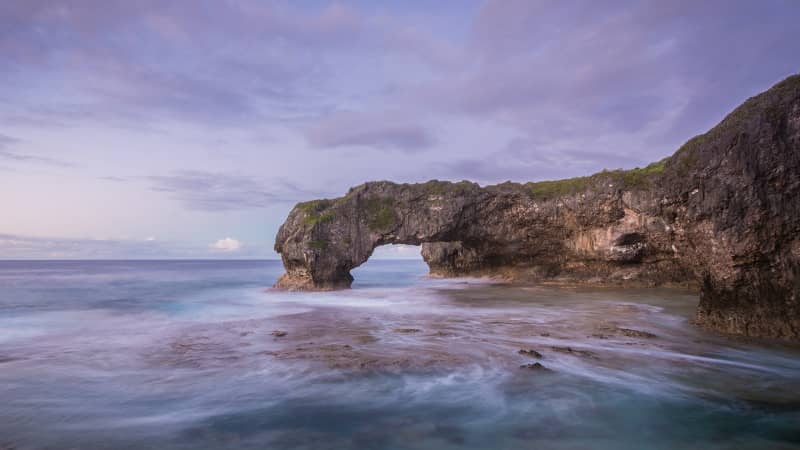“The stars and night sky have a huge significance to the Niuean way of life, from a cultural, environmental and health perspective,” Felicity Bollen, the CEO of Niue Tourism, said in a statement. “Being a dark sky nation will help protect Niue’s night skies for future generations of Niueans and visitors to the country.”
The country’s commitment to reducing light pollution was evident during the Dark Sky application process. One major move was when Niue committed to replacing all its streetlights with lower-emitting, more energy-efficient bulbs.
“Niue’s skies have been observed and appreciated for centuries,” says Misa Kalutea, a Niuean elder and cultural guardian. “The dark sky nation status adds new emphasis to the importance of our traditional knowledge, providing a reason for the retelling and sharing of this knowledge before it is lost.”

The tiny Pacific island of Niue is located about halfway between Fiji and the Cook Islands.
Kirill Polishchuk/Getty Images
The 101-square mile raised coral atoll is self-governing but has free association with New Zealand, meaning that all Niueans have Kiwi citizenship and that New Zealand represents the island in many diplomatic settings.
Most travelers who come to Niue do so via New Zealand, as there are just two flights a week through Auckland.
Tourists who do come to Niue to appreciate the night sky will be able to hire local guides, providing an economic boost to the community. During the day, they can also enjoy swimming, caving and diving.
The IDA observes International Dark Sky Week from April 19-26, 2020.
